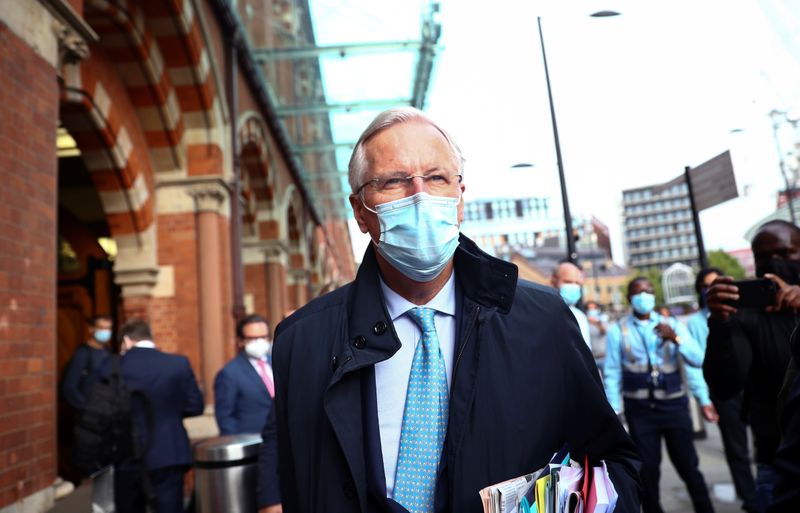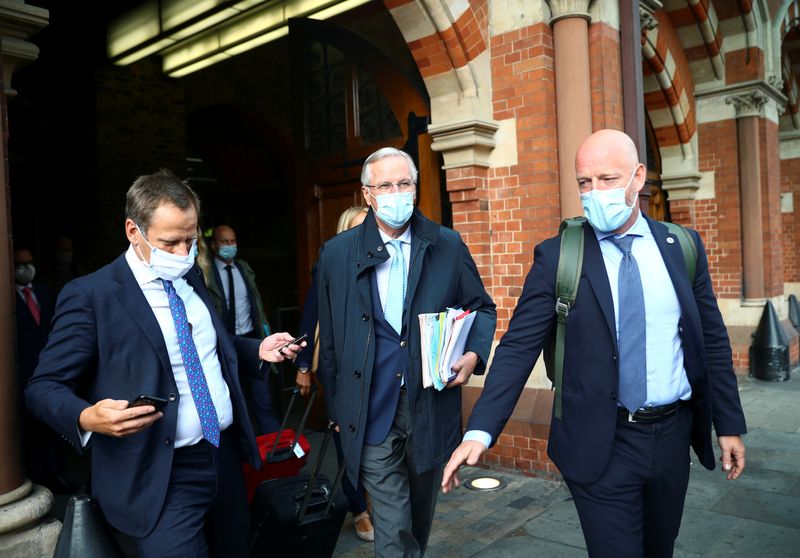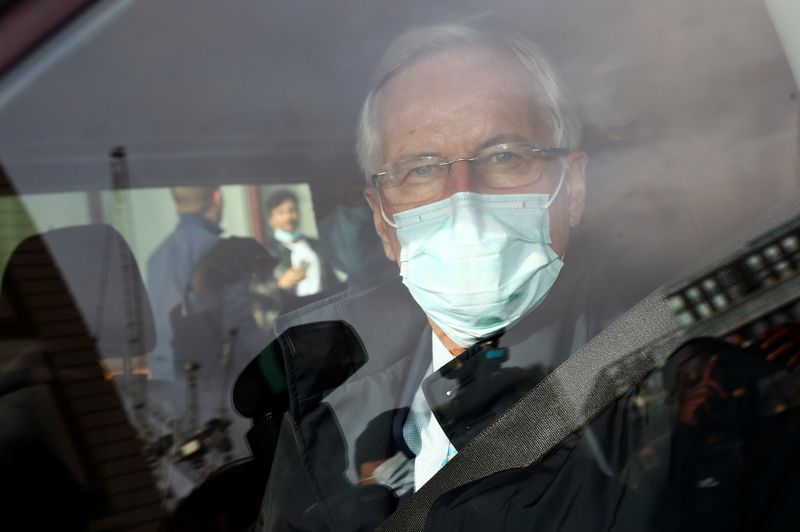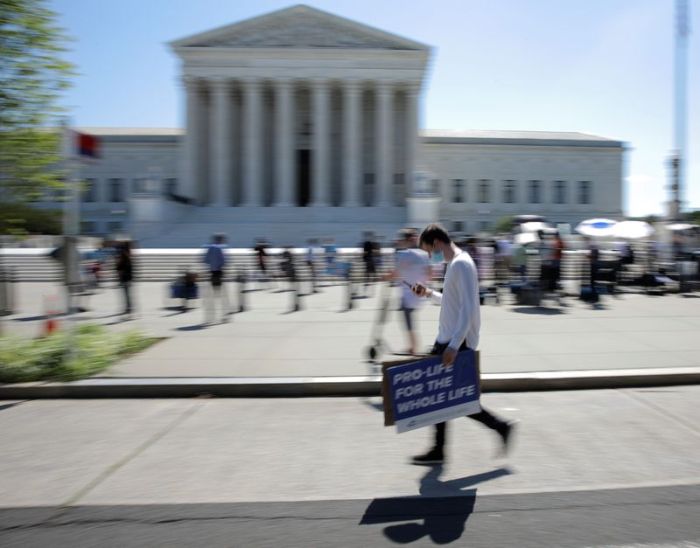LONDON/BRUSSELS (Reuters) – Britain’s Brexit supremo Michael Gove said on Wednesday that he was confident of securing a trade deal with the European Union, while the bloc’s chief negotiator said he was determined to clinch an agreement.
Prime Minister Boris Johnson plunged Brexit into chaos earlier this month by unveiling, and then pressing ahead with, draft legislation that would undercut parts of the 2020 EU divorce treaty.
The EU said it could not trust Britain if it broke international law, explored what legal action it could take and demanded London pull back from the brink.
But after two weeks of recriminations between London and Brussels, two of the most powerful players in the negotiations said on Wednesday they were determined to do a deal.
When asked on arrival in London before informal talks if he was optimistic about reaching a deal, EU chief negotiator Michel Barnier told Reuters: “I am determined.”
Four hours later, Britain said it was determined too.
“We’re absolutely determined to do everything that we can to secure a deal,” Cabinet Office Minister Gove, one of Johnson’s most senior ministers, told parliament. “No-deal is in nobody’s interests.”
Britain left the EU in January but under a transition arrangement remains a member in all but name until the end of the year, by which time it hopes to have clinched a free trade deal with the bloc.
Talks have snagged on fishing, state aid rules and how trade will flow to Northern Ireland, which will remain – under the 2020 divorce treaty – in closer orbit to the EU than will the rest of the United Kingdom.
EASING TENSION?
Gove said the sticking point was that the EU still had not come to grips with Britain’s post-Brexit status as a sovereign state, and so was trying to tie Britain into its rules.
“I’m confident we can overcome those difficulties and secure a free trade agreement which would be in everyone’s interests,” Gove said.
Barnier said the EU would be firm.
“We remain calm, respectful, realistic and firm,” Barnier said, though he declined to comment on the draft legislation that could override parts of Britain’s EU withdrawal agreement, the Internal Market Bill, or on the odds of securing a trade deal.
Britain has said it hopes never to need to use proposed powers, while the timetabling of the Internal Market Bill in the British parliament means it will take most of October and November to consider.
That means it will not be law either before an EU end-of-September deadline to withdraw the plan, or Johnson’s Oct. 15 deadline for a deal with the EU.
“The timetable for the passage of the bill does provide a welcome space for constructive engagement on the concerns raised by the UK,” a senior EU diplomat said.
“My understanding is that a decision on possible EU legal action won’t be taken until early October,” the diplomat said.
Although the EU is holding a summit on Oct. 1-2, just after the deadline expires, the bloc’s leaders will not consider next steps on relations with Britain until another summit in mid-October.
(Reporting by Guy Faulconbridge, Writing by Sarah Young and Elizabeth Piper; Editing by Michael Holden, Angus MacSwan, Alison Williams and Alex Richardson)
























